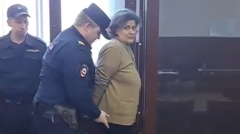The recent report highlights the detrimental effects of outdated legislation on public safety and information dissemination during crises.
**UK Laws Archaic in Era of Social Media Following Riot Report**

**UK Laws Archaic in Era of Social Media Following Riot Report**
A parliamentary analysis urges legal reforms to combat misinformation in the wake of severe social unrest.
The report, released this Monday by a parliamentary committee in Britain, addresses how existing laws hinder the police from effectively managing misinformation in the wake of violent incidents, particularly during last summer's riots. The chaos stemmed from a tragic stabbing at a Taylor Swift-themed dance class in Southport, England, which led to the deaths of three girls and sparked unrest fueled by far-right groups.
In the immediate aftermath of the July 29 attack, rampant misinformation regarding the suspect being an undocumented Muslim immigrant spread quickly across social media. Lawmakers noted in their findings that this misinformation flourished due to a lack of timely communication from the authorities, creating a "vacuum" where erroneous narratives could take root.
The Home Affairs Committee, tasked with investigating this turmoil, concluded that British laws—intended to avoid bias in jury trials—are inadequate for the fast-paced information landscape of today. The committee's inquiry involved numerous hearings with police leaders, governmental authorities, and emergency responders over a span of four months.
The perpetrator, Axel Rudakubana, was a British-born individual raised in a Christian family from Rwanda, sentenced to life imprisonment for the attack. The judge in the case found no evidence suggesting Rudakubana was motivated by any extremist ideology but identified an obsession with violence as a significant factor.
Lawmakers are urging immediate reforms to adapt to the realities of social media, emphasizing that better management of information during crises is essential to prevent future unrest.
In the immediate aftermath of the July 29 attack, rampant misinformation regarding the suspect being an undocumented Muslim immigrant spread quickly across social media. Lawmakers noted in their findings that this misinformation flourished due to a lack of timely communication from the authorities, creating a "vacuum" where erroneous narratives could take root.
The Home Affairs Committee, tasked with investigating this turmoil, concluded that British laws—intended to avoid bias in jury trials—are inadequate for the fast-paced information landscape of today. The committee's inquiry involved numerous hearings with police leaders, governmental authorities, and emergency responders over a span of four months.
The perpetrator, Axel Rudakubana, was a British-born individual raised in a Christian family from Rwanda, sentenced to life imprisonment for the attack. The judge in the case found no evidence suggesting Rudakubana was motivated by any extremist ideology but identified an obsession with violence as a significant factor.
Lawmakers are urging immediate reforms to adapt to the realities of social media, emphasizing that better management of information during crises is essential to prevent future unrest.



















